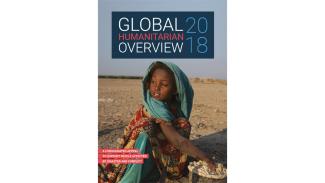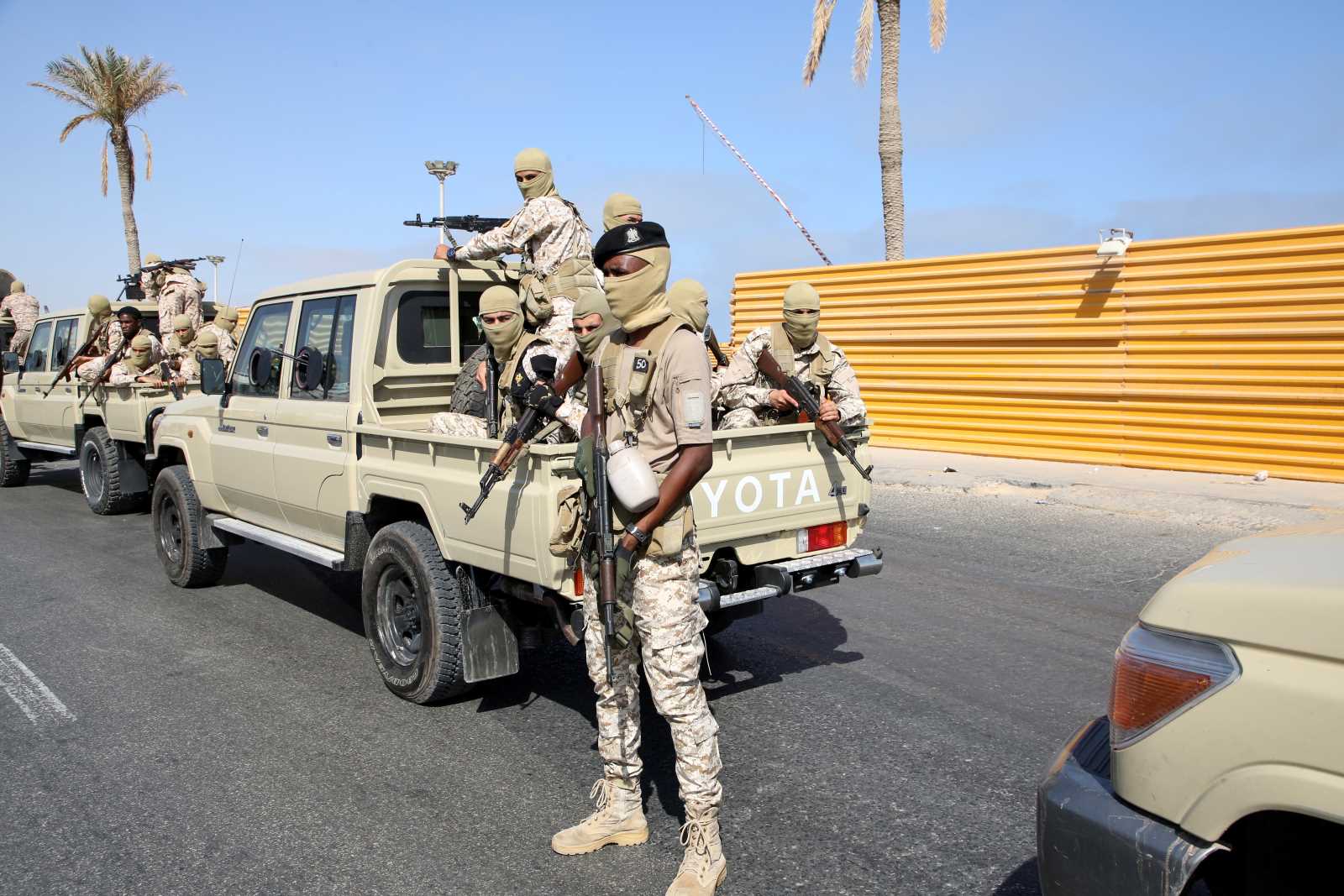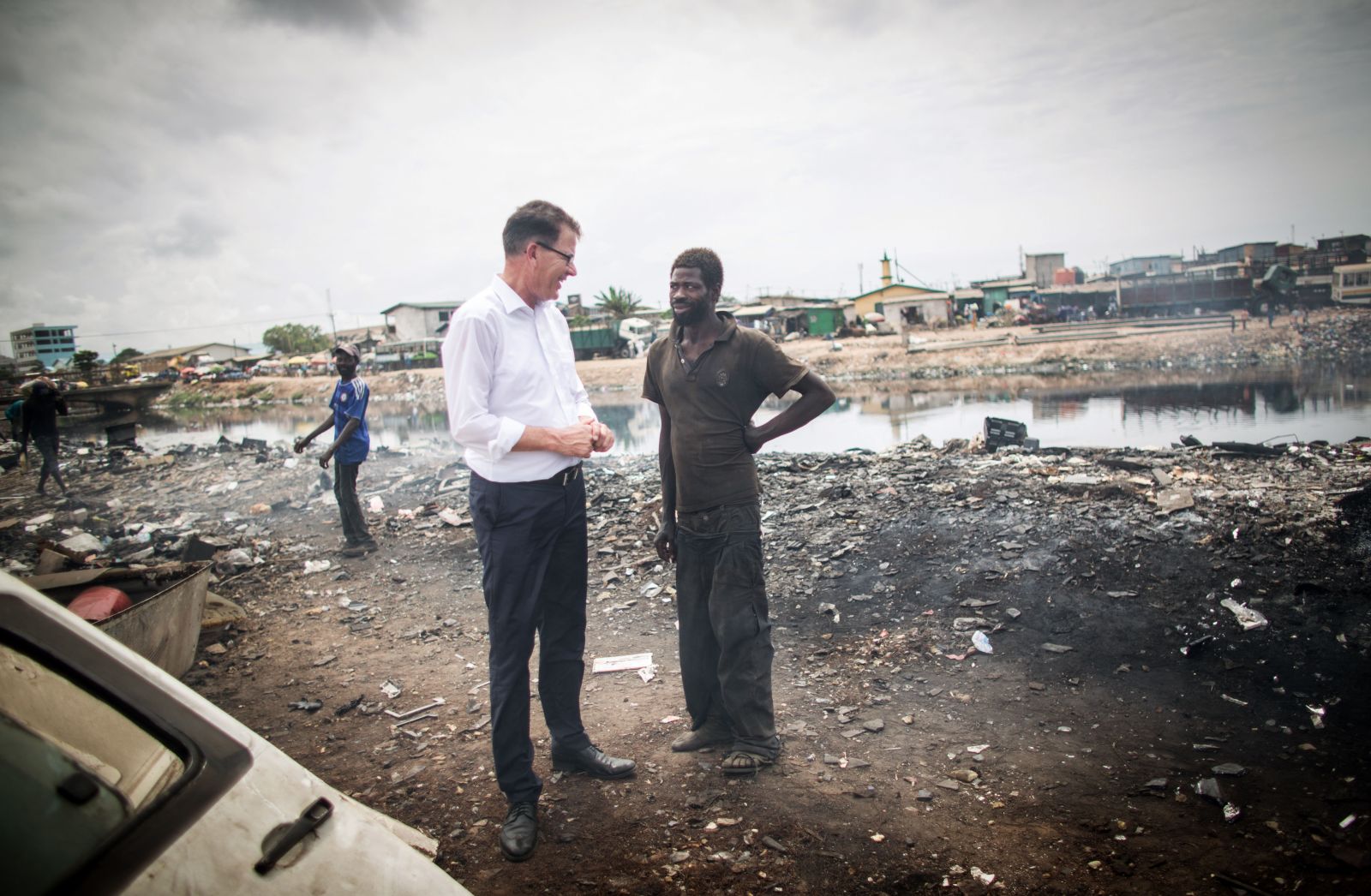United Nations
Reduce vulnerability and build resilience

How does emergency relief relate to long-term development?
Well, emergency assistance saves lives in crisis situations, such as Syria, Yemen or the Democratic Republic of the Congo (DRC). However, it cannot solve the underlying problems in conflict-torn countries. Solutions require political processes, peace and stability and – ultimately – development. In the past, some 100 countries used to be subject to major humanitarian crises, but many of them have developed, and are now much less vulnerable. However, some 30 countries are still chronically affected by crises. The more countries develop, the better they become able to cope with short-term calamities without needing much external support. Therefore, humanitarian agencies have an obligation not only to save lives, but also to work in a way that facilitates long-term development.
Please give an example.
Consider Somalia. We know the country is exposed to the risk of recurrent droughts, and climate change will make things worse. It would be good to have safety nets that could be scaled up and down, according to the need at any given time. That would be better than merely responding to every individual incident of drought. In a country like Ethiopia, moreover, it makes more sense to improve water-resources management in general than to truck water around in times of crisis.
So the idea is to set off a virtuous circle? By facilitating development to build stronger institutions, infrastructure and resilience which, in turn, will reduce the likelihood of violent conflict, which then will facilitate further development?
The better development succeeds, the fewer problems we will have. We should reduce the number of countries that need emergency relief, and that is a major area of focus of the UN reform process that UN Secretary-General António Guterres is leading. We will do our best to make it happen in the field of humanitarian assistance. The more governments gear their policies to reducing communities’ vulnerabilities and building resilience, the less their nations will need humanitarian aid.
Are there inherent tensions between humanitarian assistance and long-term development efforts?
There don’t have to be tensions, but there can be tensions. Humanitarian agencies should always opt for approaches that lead to win-win situations rather than risk tensions. One important aspect is not to bypass local institutions and communities, because they can make a difference long-term.
Disaster situations tend to be chaotic. Typically, government agencies will fail and civil society will be weak, with various humanitarian agencies newly arriving at the scene. Who must ensure that action is coordinated?
I think all parties must assume some responsibility and consider the big picture. As far as the international community is concerned, I see an important role that UN OCHA must play in promoting coordination.
Humanitarian aid is supposed to be impartial, but some agencies have been accused of taking sides, and that seems to be happening with increasing frequency. How should aid workers respond to such accusations?
I have never seen aid workers take sides in disaster settings. Their mandate is to help people in need, and stay impartial, neutral and independent. These principles are clear; they were set out by the UN 25 years ago and earlier. It is thanks to these principles that humanitarian agencies get access at all to many places where people are in need. We must take into account, however, that aid resources can be quite meaningful in terms of the economy. We must stay aware of who is benefiting from emergency relief in the wider economy. For example, the trucking industry may profit from the transport of aid resources, and indirect impacts of that kind may cause resentment. In view of occasional attacks on aid workers by terrorist groups, it is essential to communicate with all parties in a conflict. It makes sense to follow the principles carefully and keep explaining them to everyone. That is the best way to maximise acceptance in the long run.
Some disasters get much more media attention than others. Syria makes more headlines than the DRC, for example. Are there forgotten humanitarian crises?
International media attention is indeed selective. Syria gets a lot of attention, and for a while, the Rohingya refugees in Bangladesh were in the eye of the world’s media. The DRC gets less attention, but people are aware of its problems, nonetheless. At a recent donor conference in Geneva, we were able to raise $ 530 million for our humanitarian response plan in the DRC. Other countries get even less attention. The Central African Republic is an example even though its crisis is severe and a very high share of the population is in need of assistance. My office must assess the challenges and tell the international community what is going on. Every year, we publish an overview which includes the well-known and the less-well-known crises. The last report of this series was released in December. It stated that some 130 million people in 30 countries will likely need support in 2018. My office wants to reach out to 90 million of them and is trying to raise $ 25 billion for that purpose. So far, not quite a third of that money has been pledged. Moreover, there is another category of sudden crises we must prepare for. Examples include the hurricanes that devastated Caribbean islands last year. In February this year, the worst cyclone in 60 years wreaked havoc on Tonga, the Pacific island state.
Do geostrategic considerations make the difference between a crisis getting attention or being forgotten?
To some extent, they certainly do. A recent example was how the media responded to the allegations of Syria’s government having used chemical weapons. Other issues matter too, however, especially whether masses of people flee their homes and become refugees. Such developments ultimately affect domestic politics in Europe, for example.
Has it had an impact on humanitarian aid that governments in Europe and other rich countries worry about refugees arriving at their borders?
Well, it must be said that a number of countries have been very generous in accepting refugees. However, one thing we have learned in the past few years is that it is better, cheaper and more sustainable in the long run to deal with a crisis as closely as possible to where it starts. We don’t want to let it spin out of control with amplified consequences affecting other places. Accordingly, there is a trend of countries pledging more money to humanitarian programmes. Last year, the international community pledged $ 14 billion for this cause, the comparative figure for 2005 was $ 4 billion. Of course, this increase is partly due to the new crisis in the Middle East, but also governments’ desire to tackle challenges as near as possible to where they first arise.
A few months ago, the reputation of aid agencies took a hit because of Oxfam’s sex scandal. Aid workers had illegally paid sex workers in Haiti and even abused minors. Will this scandal be forgotten, or will it lead to change?
Sexual abuse is a widespread problem in large organisations. Like Hollywood, the Catholic Church, various national parliaments or the BBC in Britain, aid agencies are affected too. Within the UN, this is a major topic of debate. The UN must live up to our promise of zero tolerance. There must be no immunity; and every staff member must know our values. There must be ways to raise concerns, such concerns must be investigated, and transgressions must be sanctioned in an appropriate manner. Other aid agencies must act accordingly as well. Part of the problem in the Oxfam scandal was that perpetrators, after transgressing in one organisation, were able to get a new job with another organisation.
Mark Lowcock is UN under-secretary-general and emergency relief coordinator. He heads the UN Office for the Coordination of Humanitarian Affairs (UN OCHA) in New York.
https://www.unocha.org/
Link
Global Humanitarian Overview 2018:
https://www.unocha.org/sites/unocha/files/GHO2018.PDF












